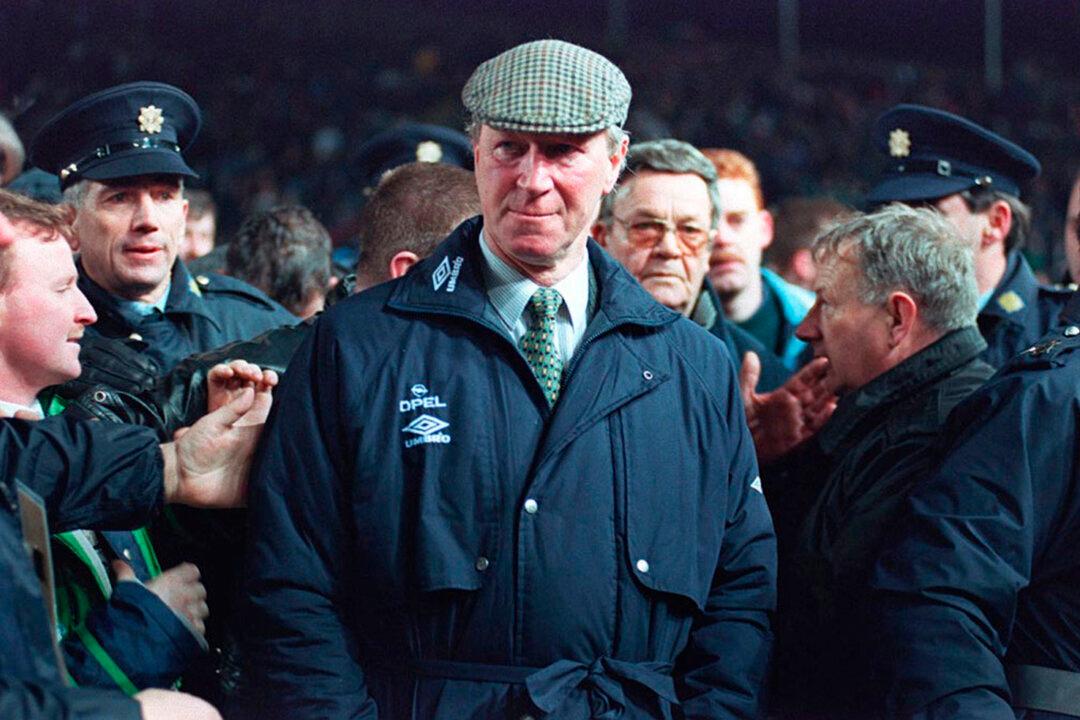Jack Charlton, an uncompromising central defender who played alongside his brother, Bobby, in England’s World Cup-winning side in 1966 before enjoying coaching success with Ireland, has died. He was 85.
Nicknamed “Big Jack,” and celebrated for his earthy “beer and cigarettes” image, Charlton was Footballer of the Year in England in 1967. He spent all his club career at Leeds from 1952-73, tying its all-time record of 773 appearances. He won every domestic honor, including the league title in 1969.





